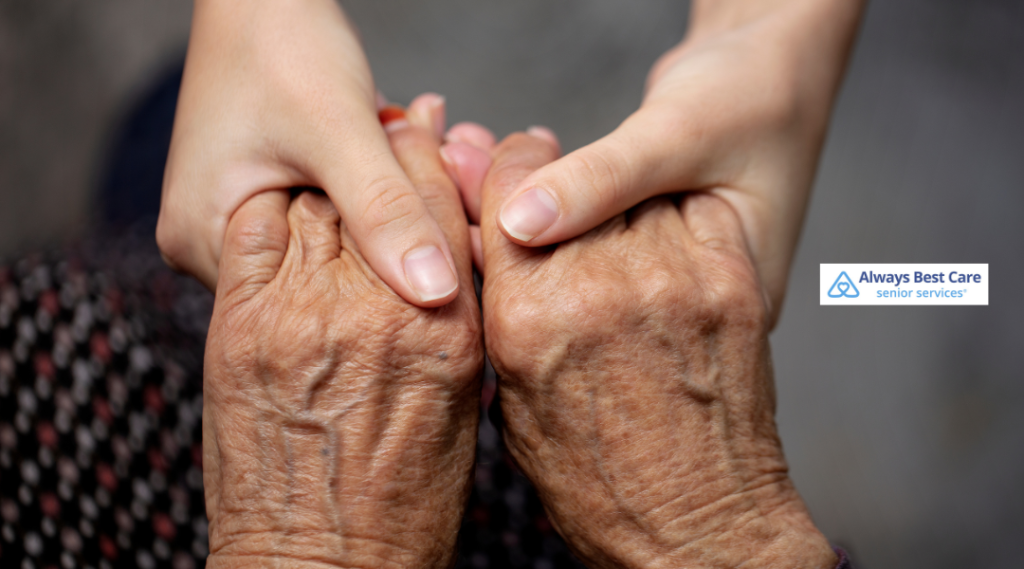Is It the Right Time to Get Home Care Help for My Parent with Parkinson’s?

Figuring out the right time to get help
Figuring out the right time to get help for a parent with Parkinson’s can feel like walking a tightrope—balancing their independence with their safety and comfort. Parkinson’s is a progressive condition, and as it moves through its stages, daily life often becomes more challenging.
Whether it’s difficulty with movement, changes in mood, or increased fall risks, having a Parkinson’s disease care plan can make all the difference. If you’ve been wondering whether in-home care for Parkinson’s patients is the next step, here’s how to know.

Table of Contents
How Parkinson’s Progression Impacts Daily Living
In the early days, your parent might still be active, managing with small adjustments like handrails or slower-paced routines. But as symptoms progress—think stiffness, tremors, and balance issues—everyday tasks like cooking, dressing, or getting in and out of bed can become more taxing. That’s when a care plan for Parkinson’s disease can help keep life running smoothly, reducing stress for both of you.
Early-Stage vs. Advanced-Stage Care Needs
- Early Stage: Your parent might only need occasional help, such as meal prep, transportation, or medication reminders.
- Advanced Stage: Around-the-clock Parkinson’s home care may be necessary, with trained caregivers assisting with mobility, bathing, and even communication challenges.
The shift between stages can sneak up on you, so keep an eye out for subtle changes.

Recognizing When Home Care May Be Needed
Ask yourself:
- Has their mobility decreased noticeably in the past few months?
- Are daily routines causing more stress or taking significantly longer?
- Have there been any close calls with falls?
If the answer to more than one of these is “yes,” it might be time to put a Parkinson’s disease home care plan in motion.
Physical Changes That Signal a Need for Support
Some physical changes are like flashing warning lights:
- Frequent stumbling or shuffling gait
- Trouble getting up from chairs or beds
- Loss of hand coordination, making eating or grooming tricky
- Fatigue that limits activities
Having home care for Parkinson’s patients means there’s always someone there to lend a hand, preventing small struggles from becoming big setbacks.
Emotional or Cognitive Shifts That Affect Daily Life
Parkinson’s doesn’t just affect the body—it can also impact mood, memory, and focus. You might notice:
- Increased anxiety or depression
- Forgetting important appointments or medications
- Difficulty following conversations
- Withdrawal from hobbies and social activities
A compassionate Parkinson’s in-home care approach can help your parent stay engaged and supported emotionally as well as physically.
Increasing Risks of Falls or Mobility Challenges
Falls are one of the most serious risks in Parkinson’s. Even one bad fall can lead to a cascade of health complications. Warning signs include:
- Leaning heavily on walls or furniture to move around
- Avoiding stairs or uneven ground entirely
- Slower reaction times when trying to catch a balance
Having a care plan that Parkinson’s disease patients can rely on means someone’s always ready to assist with transfers, walks, or exercises to improve stability.

5 Benefits of Always Best Care In-Home Care Help
- Tailored Support – Every Parkinson’s disease care plan is customized to match your parent’s stage and specific needs.
- Safety First – Caregivers are trained to reduce fall risks and keep the home environment hazard-free.
- Medication Management – Timely reminders and assistance ensure medications are taken correctly.
- Physical Assistance – Help with daily activities like bathing, dressing, and meal preparation.
- Emotional Companionship – Someone to share conversation, laughter, and encouragement.
FAQs
Q: Can home care for Parkinson’s patients be part-time?
Absolutely. You can start with a few hours a week and increase support as your parents’ needs change.
Q: Will a caregiver follow my parent’s Parkinson’s disease care plan from their doctor?
Yes. Professional caregivers coordinate with healthcare providers to make sure care stays consistent and aligned with medical advice.
Q: How do I know which in-home care agency is right for my parent?
Look for agencies experienced with Parkinson’s in-home care, with positive reviews, flexible scheduling, and trained staff who understand the condition.

Take the First Step Toward Peace of Mind with Always Best Care!
Deciding to get home care for Parkinson’s is never easy, but it’s an act of love, not surrender. The right support means your parent can keep living at home—safe, comfortable, and surrounded by familiar things—while you get peace of mind knowing they’re cared for. A thoughtful Parkinson’s disease care plan is more than just a checklist; it’s a lifeline for quality of life.
Contact Always Best Care of Manchester at (860) 533-9343 to learn more and schedule your free consultation.





